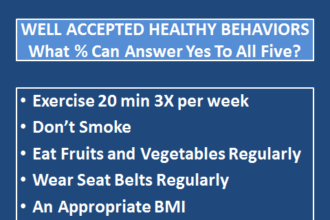“The burden of mental illness and substance abuse disorders in older adults in the United States borders on a crisis.” ~ Dr. Dan Blazer, Duke University
Stating the obvious can be a particularly irritating habit.
- “The burden of mental illness and substance abuse disorders in older adults in the United States borders on a crisis.” ~ Dr. Dan Blazer, Duke University
- “The burden of mental illness and substance abuse disorders in older adults in the United States borders on a crisis.” ~ Dr. Dan Blazer, Duke University
Exclamations of “it’s hot!” when the temperature reached 103 in Chicago last week lacked a certain originality. Sharing the sure-to-be-true warning “you’ll be sorry”” is never appreciated.
But here I am, getting ready to state what I thought would have been so apparent that no one could have missed it:
“The burden of mental illness and substance abuse disorders in older adults in the United States borders on a crisis.” ~ Dr. Dan Blazer, Duke University
Stating the obvious can be a particularly irritating habit.
Exclamations of “it’s hot!” when the temperature reached 103 in Chicago last week lacked a certain originality. Sharing the sure-to-be-true warning “you’ll be sorry”” is never appreciated.
But here I am, getting ready to state what I thought would have been so apparent that no one could have missed it:
As of the last census, there were more people 65 and older in America than ever before, and the numbers continue to rise. And [I’m not done yet] these elderly will need mental health care.
That’s it, the sum of my wisdom, the facts on the ground that, honestly, have been impossible to miss for years now.
I bother to share this because, apparently, the country has failed to integrate this most apparent of realities, and we now stand at the door of a mental health crisis for the old, woefully unprepared to address their mental health needs.
The National Academy of Sciences released a statement “FOR IMMEDIATE RELEASE” on July 10th that leads with the following:
Millions of baby boomers will likely face difficulties getting diagnoses and treatment for mental health conditions and substance abuse problems unless there is a major effort to significantly boost the number of health professionals and other service providers able to supply this care as the population ages, says a new report from the Institute of Medicine. The magnitude of the problem is so great that no single approach or isolated changes in a few federal agencies or programs will address it. [emphasis mine]
Things don’t exactly improve from there.
The Institute of Medicine, or IOM, in its report entitled “The Mental Health and Substance Use Workforce for Older Americans: In Whose Hands?” estimates up to 8 million older Americans, or 20% of older people, suffer from some form of mental health condition (including depression, at-risk drinking or dementia-related behavioral and psychiatric symptoms. A simple diagnosis of Alzheimer’s disease was not included.).
Adds Dr. Gary Kennedy, director of geriatric psychiatry at Montefiore Medical Center in New York City, 2 million of the elderly have serious mental illness (SMI).
The elderly 80 years and older have highest suicide rates of any group in the country (APA 2009). The paper “Understanding Elderly Depression” asserts that ”Depressive symptoms occur in about 15 percent of seniors living within the community and 25 percent of seniors within a nursing home also show symptoms associated with depression.”
Just as an example, in New York State, The Office of Mental Health broke down estimates of the growth of mental illness among its seniors, which you can see, through 2030, in the chart below.
There is no end to the increase in sight.
But as the numbers of mentally ill elderly grow, the numbers of healthcare professionals trained to service them simultaneously shrink.
The American Psychological Association noted as far back as 2003 that a mere 3% of practicing psychologists view geriatric patients as their primary target and “the best estimate of currently practicing geropsychologists – 700 – falls far short of the current estimated need for 5,000 to 7,500 geropsychologists.”
As of several years ago, according to Psychiatric News, Paul Kirwin, M.D., an assistant professor of psychiatry at Yale University, asserted that the number of U.S. psychiatrists who have completed clinical training in geriatric psychiatry programs accredited by the Accreditation Council for Graduate Medical Education had shrunk from 2,600 in 2001 to 2,141 in 2005, yielding 5,000 too few geriatric psychiatrist to meet the demand in 2007–and the problem continues to escalate. Today 40% of geriatric fellowships and training slots are un-filled, according to CNNHealth.
It really is no wonder so few people want to go into the field.
According to Medicare rules, every physician has a set fee. Non-mental health doctors receive 80% of that fee; psychiatrists get 50%. Geriatric psychiatrists Robert C. Abrams and Robert C. Young wrote a piece entitled ”Crisis in Access to Care: Geriatric Psychiatry Services Unobtainable at Any Price.” Abrams writes how his fee for a 2005 45-minute combined psychotherapy and psychopharmacological management session was established by Medicare to be worth $120.27–of which Medicare paid half, $60.14. Medication maintenance session prices were $59.99, of which–this doesn’t require advanced mathematics–he got $29.95.
Clearly, the financial disincentive is strong, and we are reaping what we have sown in our approach to financial reimbursement for experts in the field.
Dr. Paul Kirwin’s current assessment is grim.
“There’ll never be enough geriatric psychiatrists or geriatric medicine specialists to take care of this huge wave of people that are aging,” he said.
That, too, is coming quite close to stating the obvious.








